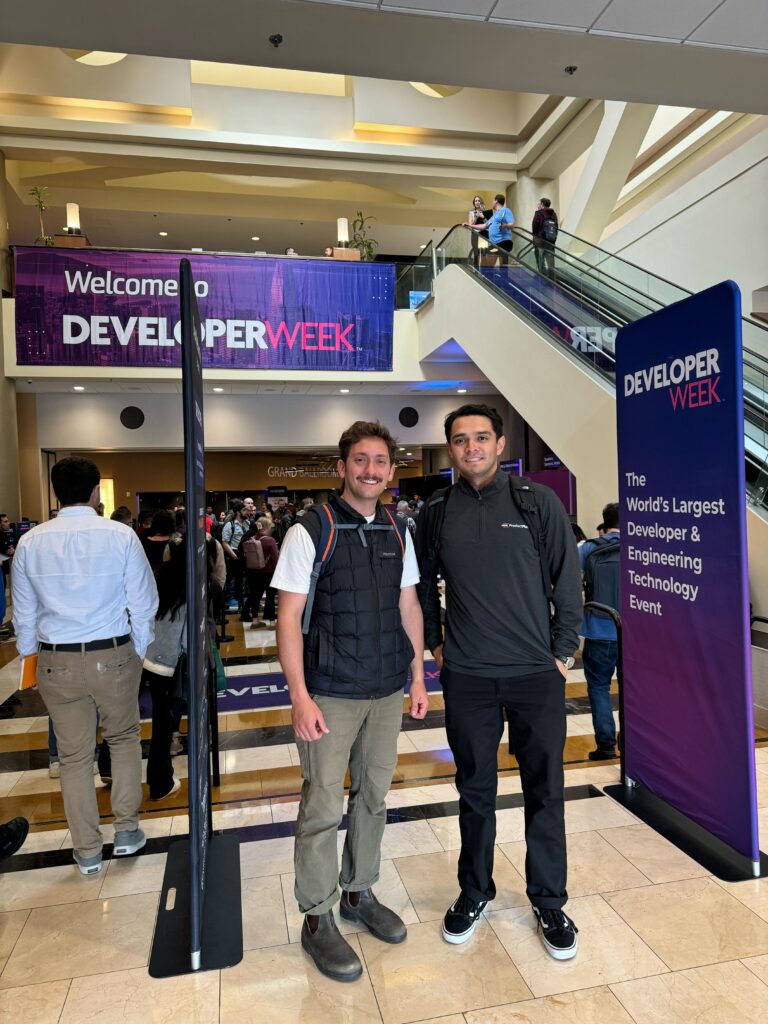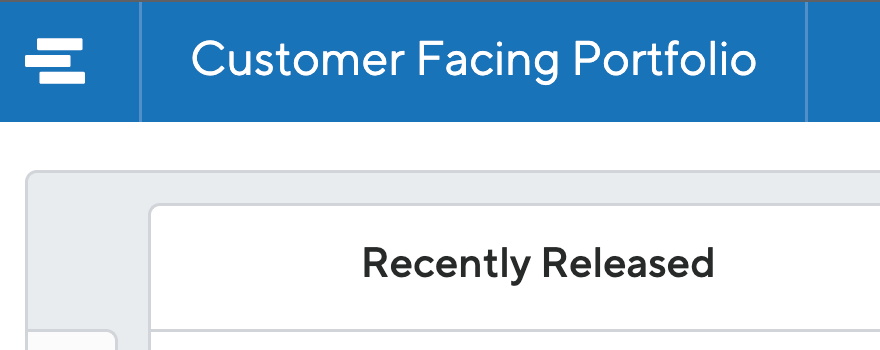Product leaders don’t often get many chances for hiring product team members. It’s not overstating things to label bringing on new talent as critically important. Additions to the product team must ramp up quickly. Then they are entrusted with varying levels of authority and autonomy to add value and allow the organization to scale.
There’s no perfect resume recipe or qualifying exam for product types. So hiring managers must assess candidates based on a few interactions, a curriculum vitae, and some reference checks. That leads to some big bets based on incomplete information.
So, how can a product leader make sure they’re onboarding new hires with a good chance of success?
Criteria for Hiring Product People During Each Stage of Interviewing
Here are some ways I vet product management candidates to weed out poor fits and spot the diamonds in the rough.
Stage 1: Reviewing the applications
A candidate’s resume will always tell you a lot about what they’ve done. But I’m just as interested in HOW they did it and their overall approach versus a long list of accomplishments. This starts with the language they use in their resume.
How did they participate in projects?
Did they “run” a project or “collaborate” on it? Was the emphasis on completing something or its actual impact?
Just like a product roadmap shouldn’t simply be a list of to-do items, I’m looking for outcomes and objectives in this context.
Are they passionate?
When hiring product team members I’m also looking for adjectives and verbs that convey patience, curiosity, and a humble style. I want a sense of the methods and tactics they employed to achieve those goals, not just that they ticked the box.
How do they measure success?
Similarly, the impact should be measured in more than dollars and cents. While it’s great that the product made a few million bucks, what I care about more is how many problems it solved. How many customers are satisfied because of specific decisions and actions made by the applicant? I’ll take a high Net Promoter Score over a short-term revenue spike any day of the week.
Are they team players?
I also want to hire team players. Look if their resume emphasizes all independent decisions made versus the processes they used to solicit feedback and garner stakeholder buy-in. If this is the case, it could be a sign they boss people around and don’t listen to opinions or leverage data-driven decision-making.
Do they commit?
One red flag for me is frequent job-hopping. It can mean they didn’t care about their customers, weren’t performing well, and had to leave, or they didn’t do their homework ahead of time and signed on for something that wasn’t sustainable.
While sometimes things don’t work out or a new opportunity springs up, you have to jump on it. If it’s a trend, then my “spidey sense” starts tingling. But it’s something I’m definitely going to dig into if they make it to the interviewing stage.
Stage 2: The phone screen
Before going through the hassle of bringing a candidate with a promising resume in for an in-person session, a phone screen can fill in many gaps. This opportunity can give you a better indication of whether they’re worth the time and energy.
I want to be sure they have enough of the necessary skills on day one to add value quickly. I have a checklist of things I want to make sure they’ve done before and can do for me.
Do they have soft skills?
This spans from the tactical to the interpersonal. Soft skills are just as essential as the ability to develop a persona or comprehend new technology. I’m looking for best practices they rely on, anecdotes from previous experiences, and other signs that they’re true practitioners.
How much did they pay attention?
It’s also an opportunity to see if they’ve fully digested the job description. I want them to prove that they understand the situation and assess the problems I’m looking for them to solve. Not regurgitation, but the ability to listen, digest, and translate into something actionable.
I want to come away with a sense of who they are, how they work with others, and whether they’re empathetic and a good listener. If they can’t show me that over the phone and forge a connection, they won’t be able to do it with customers who don’t have as much invested in the conversation.
Stage 3: During the interview
Test their abilities.
Once I finally get a chance to be in the same room with a candidate (or at least in the same video call), I rely on a go-to set of topics to ask them about to get a well-rounded picture of the potential hire before me.
Then I ask them to do some of the things they’ll have to do on the job. Write a spec, reply to a customer complaint, that sort of thing.It’s a quick way to assess their ability to think on their feet and do the day-to-day work of a product manager.
What part of the job do they care about?
I’m asking questions to uncover what they care about and where their passion lies.
What parts of the job excite them? Is it the customer interactions and interviews, solving problems and collaboration, or finding valuable use cases for new technologies?
Are they quick on their feet?
Another test is whether or not they can think on their feet. I’ll frequently change subjects and see if they can keep up. This isn’t to trick them but rather to see if they’re up for the multitasking onslaught of context-switching that product management demands.
What do they do outside of work?
I also like to consider the “full human being” I’m talking to and not just the product professional side of their personality. I ask them what they like to do for fun and how they de-stress, which is important since product management can be pretty demanding and all-consuming.
What do they care about?
Finally, I want them to articulate what it is about the role that appeals to them. Why do they think they’ll like the job, and what about the company and position interests to them. This may seem obvious, but what they focus on and articulate can be insightful. For example, a generic response indicates they may not be that invested in the opportunity.
What do they ask?
But what I ask is only half of it. The other part is seeing which questions they ask me. I’m looking for candidates that have an innate curiosity. If that doesn’t emerge during these sessions, it’s unlikely I’ll move forward.
I’m actively hoping they’ll surprise me and take me out of my comfort zone. Questions I can’t answer or haven’t even thought of indicating they’re engaged and might bring a fresh new perspective to the team.
And it’s all the better when they ask me a personal (yet appropriate) question. This shows they can connect on a human-to-human level and are trying to get a better feel for what it will be like to work for/with me. Not to mention it’s a good proxy for how they’ll fare conducting customer interviews.
Do they think of the big picture?
While the hiring process is all about filling a specific open role at a particular moment in time, we all know that situations change over time. Serious professionals aren’t only concerned about their next job, but the one that comes after that. That’s why I always touch on their career path during our interactions.
I explain the current role, how it fits into the overall organization, and that even though they may not have direct reports, it doesn’t mean they’re not a senior team member. I also don’t base compensation on whether they’re managing other folks. The goal is product excellence and customer delight, not empire-building.
Beyond that, I touch on where they could grow within the organization. On how this job will prepare them for future opportunities beyond this company. Although we’d love our product hires to stick around for decades, I’m not naive about how mobility plays into career development and am open about how this job positions them for long-term success.
Of course, what I’m really looking for is the candidates to ask these questions as well. While bringing this topic up might make them a little uncomfortable, I also don’t want product people with no ambition or drive. As long as they’re not too aggressive on this front, I welcome them to consider their own future as they consider the job at hand.
A Good Use of Everyone’s Time
When hiring product team members reviewing, screening, and interviewing potential fits takes a while if you’re doing it right. But if a lengthier process yields better fits for the organization that is likely to stick around for a while, it’s well worth the extra effort.
A bad hire is a sunk cost, but it’s also a missed opportunity. The months wasted onboarding them, the negative customer experiences, and the problems that didn’t get solved are far costlier than taking more time to bring the right person in the first time around.
The best candidates will share your team’s values, complement the staff already in place, and augment the group’s overall capabilities. It’s one of the few times when being extra picky and diligent is worth a potential delay.
Watch our webinar, Hiring and Growing a Successful Product Team, to see what product leaders look for when hiring new team members:






